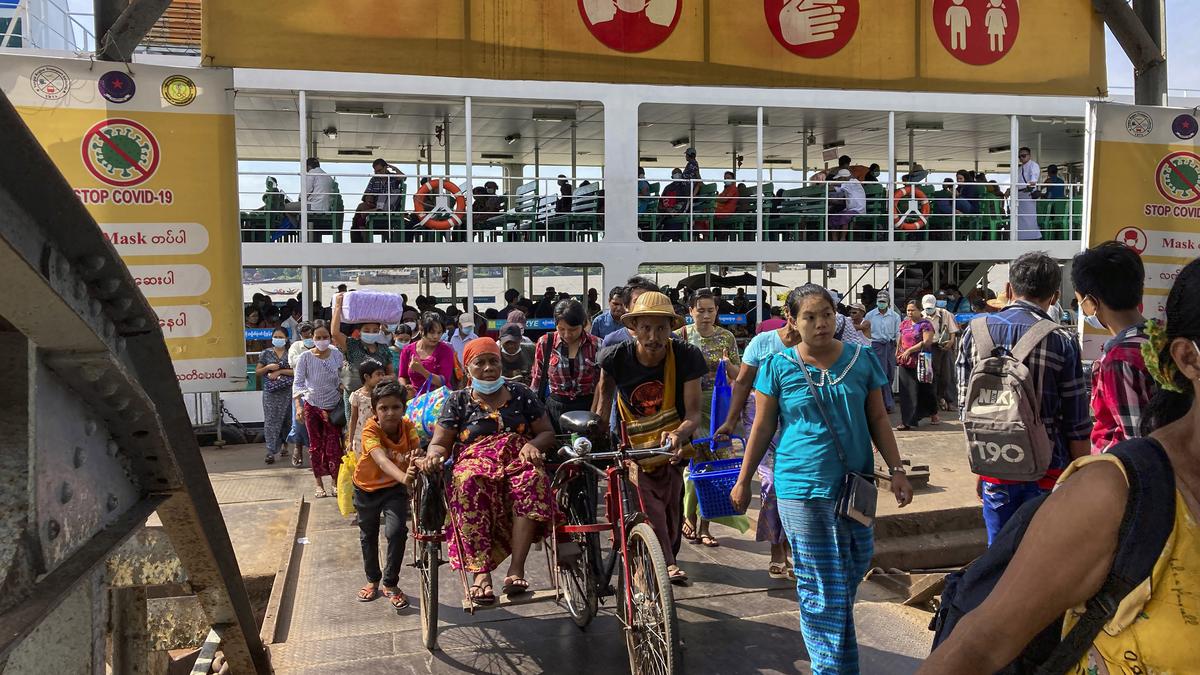
Myanmar's economy in crisis as civil strife disrupts trade and livelihoods
The Hindu
Myanmar's economy struggles amid civil war, poverty, and shrinking exports, with little improvement expected shortly
Myanmar, once a thriving emerging economy, is struggling to regain momentum as the country's civil war increasingly disrupts trade and livelihoods.
World Bank economists estimate the country's economy grew at a 1% annual pace in the year that ended in March, more slowly than earlier expected, according to a report issued on June 13. They expect a similar rate of growth for this fiscal year.
The report says nearly a third of all people in the country are living in poverty and the economy is about 10% smaller than before the pandemic.
The World Bank's survey in April “suggests little to no improvement in economic activity over the past six months,” it said.
Pro-democracy guerillas and ethnic minority armed forces have been battling the Myanmar military after the army ousted the elected government of Aung San Suu Kyi in early 2021. In recent months, the military has been stretched thin by increasing pressure from the resistance forces, suffering a series of unprecedented battlefield defeats.
“The economic outlook remains very weak, implying little respite for Myanmar's households over the near to medium term,” the report says. “The business environment will continue to be constrained by conflict, trade and logistics disruptions, macroeconomic volatility, regulatory uncertainty, and power outages.” More than 3 million people are thought to have become displaced from their homes due to armed conflict across much of the country. Meanwhile, the value of Myanmar's currency, the kyat, has sunk and many imported goods are in short supply. The report said about a third of factories surveyed by the World Bank reported facing electricity outages.
In the half-year that ended in March, Myanmar's exports declined 13% from a year earlier while imports dropped by 20%, the report said.

Air India has signed an agreement with Bengaluru Airport City Limited (BACL), a subsidiary of Bangalore International Airport Limited (BIAL), to develop a built-to-suit facility for the AME program that will feature modern classrooms, well-equipped laboratories for practical training and a team of qualified trainers.










